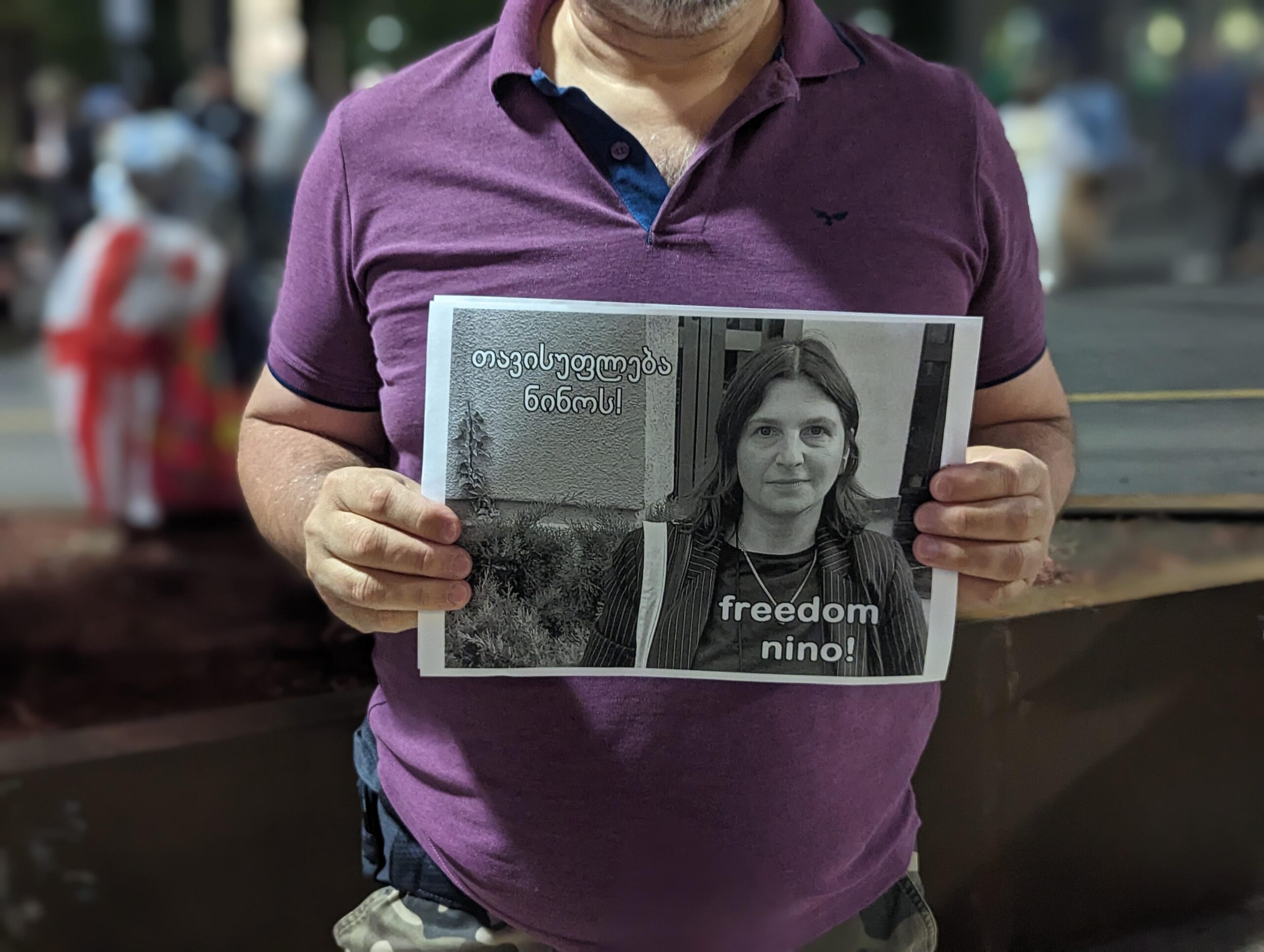The recent court decision to authorize the forced transfer of detained activist Nino Datashvili to a psychiatric facility for examination has fueled fears that Georgian Dream authorities might be resorting to repressive methods characteristic of Soviet rule or fascist regimes.
On August 2, Tbilisi City Court granted prosecutors’ request for Datashvili’s involuntary examination, which would allow for her forced transfer to a psychiatric facility for 20 days. The request was based on 2019 medical records submitted by the defense, which indicated “emotional lability” as a symptom accompanying a serious and painful spinal condition.
The controversial decision has led representatives of various groups, including psychologists, social workers, lawyers, and educators, to condemn what they saw as an abuse of psychiatry in the crackdown on critics.
“In the Soviet Union, isolating dissidents from society through forced placement and ‘treatment’ in psychiatric institutions was a common method of political reprisal,” read the joint statement signed by hundreds of mental health professionals.
The statement cited global statistics indicating that one in four individuals experiences common mental health conditions, such as anxiety, depression, post-traumatic stress disorder, and related emotional lability, at least once in their lifetime. “Subjecting individuals to psychiatric examinations on this basis, without their participation in making decisions on such examination, constitutes a violation of fundamental human rights and may amount to inhuman and degrading treatment,” the statement read.
The statement noted such practices were characteristic of “fascist political regimes.”
Datashvili, activist and teacher, was arrested on June 20 and faces four to seven years in jail over charges of attacking an officer, based on a June 9 episode when she was forcibly removed from court by several bailiffs. Video footage from the scene appears to show her frantically swinging her hands at a bailiff while being restrained and removed, though the nature or force of the contact is unclear from the video.
Datashvili’s lawyers from Partnership for Human Rights, a local group, have argued that the move was an attempt to discredit and stigmatize the detainee and served to remove her from activism.
Chilling Comparisons
The controversy has particularly evoked chilling comparisons to the case of Nasi Shamanauri, a Soviet-era Georgian journalist who was forcibly institutionalized over her outspoken criticism of local policies. Shamanauri spent months in confinement, during which she undertook a hunger strike and reportedly succumbed to beatings and torture in 1983.
“If this toxic process isn’t stopped now, tragedies like that of Nasi Shamanauri will become our everyday life,” Jana Javakhishvili, a prominent psychologist and professor of Tbilisi’s Ilia State University, warned.
The Prosecutor’s Office of Georgia said that their request for the activist’s examination was indeed based on the medical records submitted by the defense, where, the statement said, “psycho-emotional lability is indicated as an accompanying disease.” Prosecutors claimed psychiatric evaluations are routinely ordered in such cases.
But according to Nona Kurdovanidze, head of the Georgian Young Lawyers’ Association, a local human rights group, the examination “was ordered without sufficient evidence,” particularly the evidence that would mandate Datashvili’s transfer to a psychiatric facility.
The Public Defender’s Office said on August 4 that they “continue monitoring” Datashvili’s case, and their representatives have visited her multiple times. During the recent visit on August 2, Datashvili “spoke about various issues, including her health condition and imprisonment conditions, which in turn significantly affect the defendant’s health condition,” the agency said.
The Office said it has requested Datashvili’s medical records, but chose not to disclose them “since this data constitutes personal information of a special category regarding Nino Datashvili’s health condition.”
Datashvili’s case is among several recent prosecutions that critics say demonstrate the ruling Georgian Dream party’s increasing use of harsh criminal charges against activists and journalists for relatively minor incidents. Another high-profile example is the case of journalist Mzia Amaghlobeli, whose verdict is expected on August 6.
Also Read:
- 24/06/2025 – Poet Zviad Ratiani Detained, MIA Says for Assaulting Police Officer
- 18/06/2025 – Jailed Journalist Mzia Amaghlobeli Fined Twice on Single Incident
This post is also available in: ქართული
